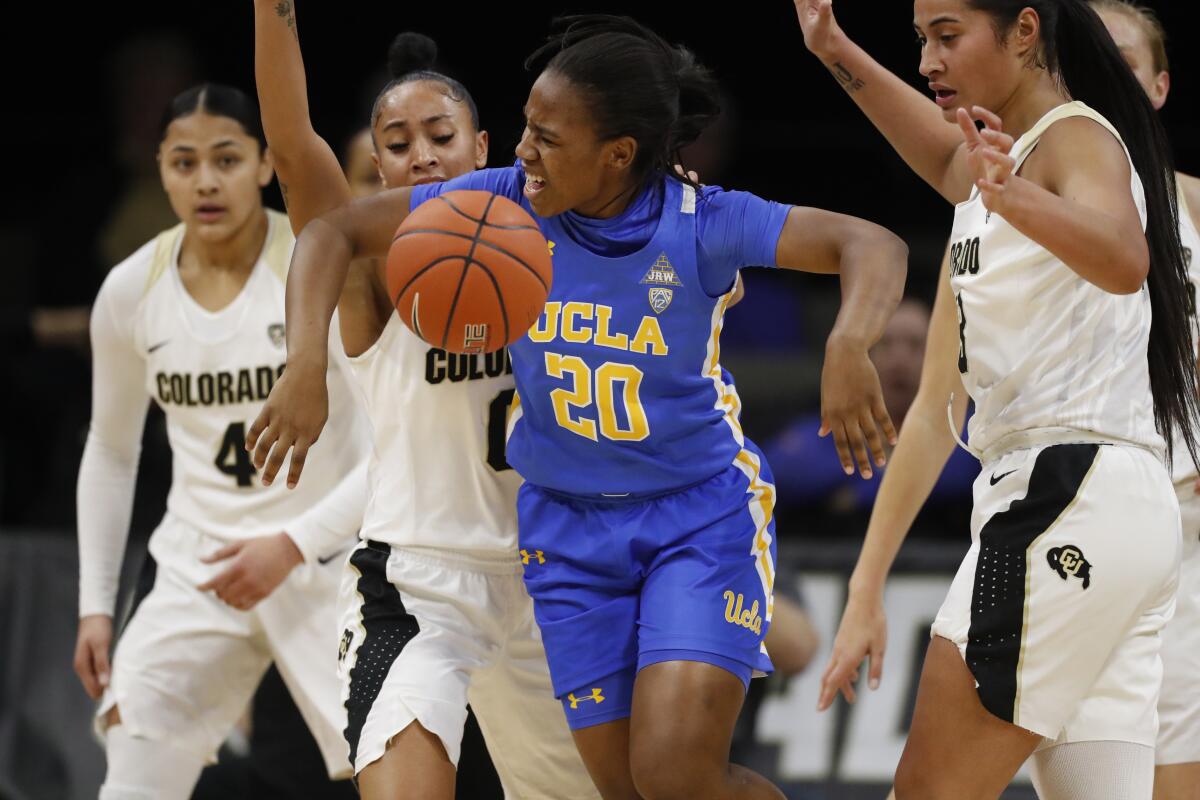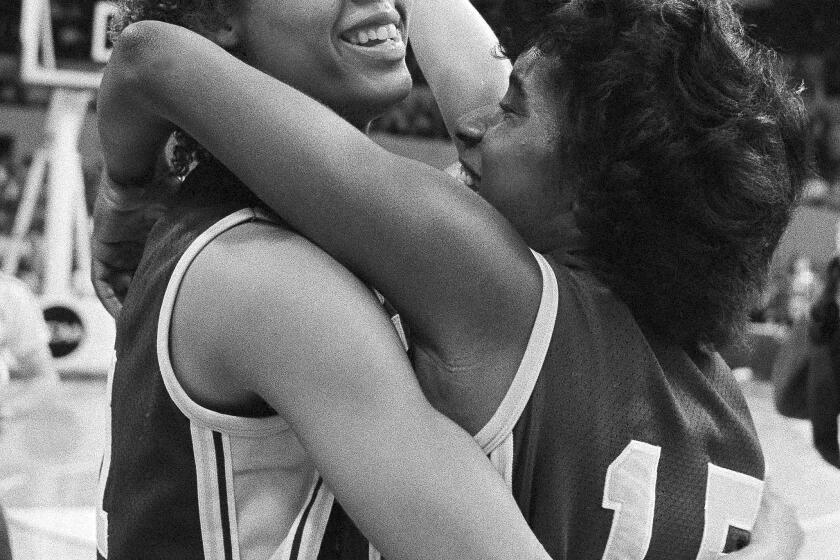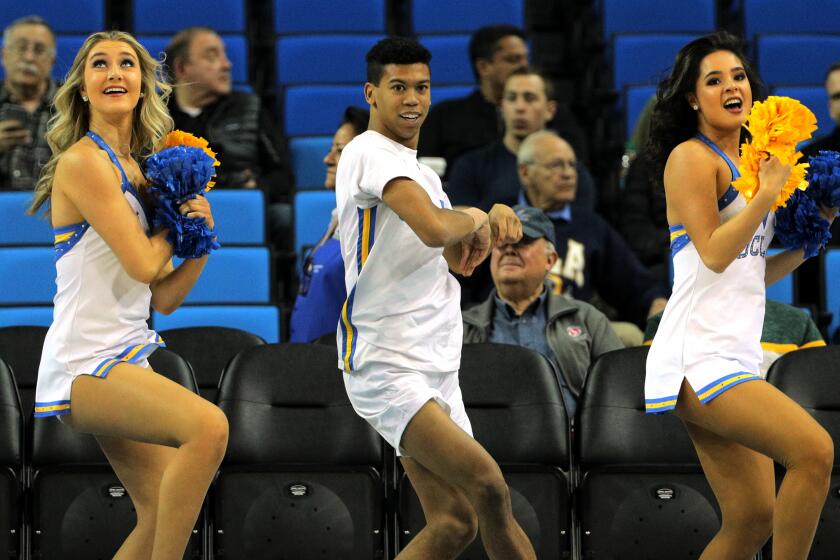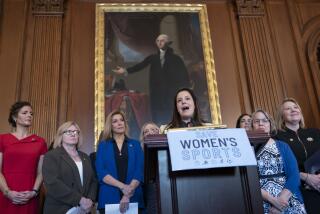Study shows women athletes still face barriers

Nearly 50 years after the passage of Title IX, girls and women are flocking to sports in record numbers but still face an uneven playing field, according to a national report issued Wednesday.
The 96-page study from the Women’s Sports Foundation found unprecedented participation at American high schools and colleges over the last two years.
It also showed that females continue to lag men by as much as 10% and face barriers when it comes to opportunities in professional sports, coaching and administration.
“From the playing fields to board rooms, girls and women continue to live out their passion for sport,” Deborah Antoine, the foundation’s chief executive, said in a statement. “As these accomplishments are celebrated, let’s continue to examine the gaps and opportunities to ensure that all girls and all women can get in the game.”
Written as part of the Education Amendments of 1972, Title IX declares: “No person in the United States shall, on the basis of sex ... be subjected to discrimination under any educational program or activity receiving federal financial assistance.”
In the simplest terms, the law strives for “proportionality” — if half the student body is female, there should be a corresponding percentage of opportunities. Schools can also comply by showing improvement.
HBO Sports will air a documentary called “Women of Troy” highlighting the Cheryl Miller-led USC women’s basketball team that won back-to-back NCAA titles.
Officials spent much of the 1970s wrestling with how to apply the legislation. A 1984 Supreme Court ruling limited its scope, but Congress reinstated its jurisdiction four years later.
The Women’s Sports Federation scrutinized hundreds of studies, public documents, lawsuits and media reports. It also surveyed 2,356 female sports leaders from around the nation.
Girls’ participation in high school sports rose for the 29th consecutive year in 2017-18, reaching a high of 3.4 million, the report noted. That total dropped only slightly in 2018-19.
At the NCAA level, there were 216,378 opportunities, representing a 291% increase from the 1981-82 school year.
“Across the board, more girls and women are accessing the significant benefits of sports participation,” the foundation stated.
Young girls still tend to start sports later than boys and drop out sooner, participating at a rate of 7% to 10% lower.
Eighty-seven percent of NCAA schools at all three division levels offer disproportionately higher athletic opportunities to men when compared to enrollment. There also has been a discrepancy in spending for men’s and women’s sports.
Foundation researchers expressed concern that high schools and colleges did not have sufficiently educated staff, including coaches, to oversee Title IX compliance. These inequities extend beyond the reach of law, into professional sports where female athletes struggle to play in the U.S.
“There are so few opportunities,” the foundation said, “women have to pursue professional careers overseas.”
Research suggested that media also plays a role.
Devin Mallory, a third-year dance major, became the first male member of the UCLA dance team this school year.
Although an estimated 1 billion people watched the 2019 Women’s World Cup, overall coverage of women’s sports declined from 1989 through 2014, representing only 3.2% of television news and highlight shows, according to a study cited by the foundation.
Newspaper staffs included disproportionately few female sportswriters.
“Without fair media coverage, women’s sports role models are invisible,” the report said, adding that “girls and women may conclude there is little cultural value assigned to their participation in sport.”
In addition to issuing their findings, foundation leaders announced the launch of a project to push for change.
They would like to see improved oversight at all levels of sport and adequate funding so that every school can designate and train a Title IX coordinator. They want a reevaluation of hiring practices to ensure women get a fair shot at coaching and sports administration jobs.
In the media, the foundation is calling for outlets to hire more women to improve equity in coverage.
“Girls and women reap significant benefits from sport participation that are both immediate and long-term,” the report said. “And ensuring that all U.S. girls and women have access to sport and physical activity is key to the health and the success of the nation.”
More to Read
Go beyond the scoreboard
Get the latest on L.A.'s teams in the daily Sports Report newsletter.
You may occasionally receive promotional content from the Los Angeles Times.













